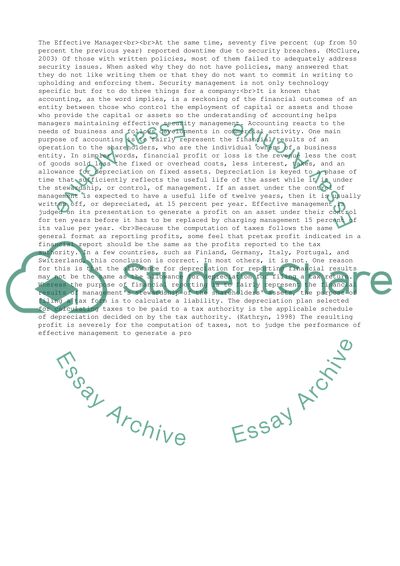Cite this document
(“The Effective Manager Assignment Example | Topics and Well Written Essays - 2250 words”, n.d.)
Retrieved from https://studentshare.org/business/1499641-the-effective-manager
Retrieved from https://studentshare.org/business/1499641-the-effective-manager
(The Effective Manager Assignment Example | Topics and Well Written Essays - 2250 Words)
https://studentshare.org/business/1499641-the-effective-manager.
https://studentshare.org/business/1499641-the-effective-manager.
“The Effective Manager Assignment Example | Topics and Well Written Essays - 2250 Words”, n.d. https://studentshare.org/business/1499641-the-effective-manager.


